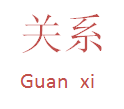
Business in China: Bend like bamboo – Part I
The People’s Republic of China has recently celebrated its 67th birthday. Clearly, this is the perfect opportunity to learn about business and culture in China. Success in working across borders and between cultures does not come by itself: at Expertise in Labour Mobility we believe that thorough knowledge, education and preparation are crucial to make international labour mobility work, and we do so with the help of workshops, career guides and sharing knowledge within this expertise.
A step towards understanding business culture is a change of mentality, and in order to truly understand the impact cultural differences can have on doing business in China – or in any other country – it is important to keep sharing knowledge and experiences with the people around you. You might gain new insights or change your stance towards cultural attitude, and learn from other people’s experiences. Our doors are always open for new people and observations – so should be yours!
This is why ELM thought it was time to exchange some of this knowledge and give some real-life examples of experiences. I spoke to China expert Jochum Haakma: former career diplomat and author of a monthly column about cultural differences in The China Times. He lived in Hong Kong and Shanghai for almost a decade. I visited him in his house in The Hague.
After being warmly welcomed by him and his wife, it was clear to me that this evening was going to be an interesting one. Looking at the interior of their house, I already imagined myself being in China. After some small talk prior to the interview we agreed: cultures can differ enormously, and if you do not know how to approach a situation from a different cultural aspect, you will most likely not reach your goal. Being uninformed about the approach of certain situations can be fatal. In his columns ‘When West meets East’ Mr. Haakma discusses personal experiences: business negotiations, contract signing, humour, saying ‘yes’ (or rather: not saying ‘no’), and the effect and importance of personal bonding.
While serving me a nice glass of white wine, the most important element of the Chinese (business) culture was put on the table: guanxi. This Chinese term is a central idea in Chinese society that stands for any kind of relationship, and the network that you build around yourself. Anything that relates you to your Chinese counterpart will do. Anything that crosses an international and/or intercultural barrier: a common friend, a common interest or whether you are wearing matching socks. Guanxiis more than establishing a good relationship. It is a mixture of something you have and something you can learn; charisma and humour being incredibly important. It plays a crucial role in the shaping and improving relations between counterparts. It is about giving and taking; an exchange of favours. It is also something very subtle. For instance, Chinese culture is very mythological and full of rituals. (Fun fact: China had a Ministry of Rites until 1911!)
The translation of your name on your business card is very important. As an example, Mr. Haakma shared one of his most memorable experiences: “make sure to get a good translator who can give a good or positive connotation to the meaning of your name. My translator gave me, after careful consideration, the name Xia Sje Gun. This name translated into ‘upcoming sun’ ‘new spring season with upcoming sun’ and ‘balance.’, which was often enthusiastically commented upon within Chinese circles.” So, a good sounding name really does help you in your contacts and personal bonding. “I remember this respective Dutchman whose name translated into ‘heap of bad smell’. Well, need I say more?”
Even though guanxi can help you move mountains when conducting business, it can also be your pitfall, and this can be a vicious one. Its influence should not be underestimated. Curious to find out about the pitfalls? Stay tuned for Part II in January!
Emma Cornelis
Expertise in Labour Mobility
© Expertise in Labour Mobility B.V. All rights reserved.

